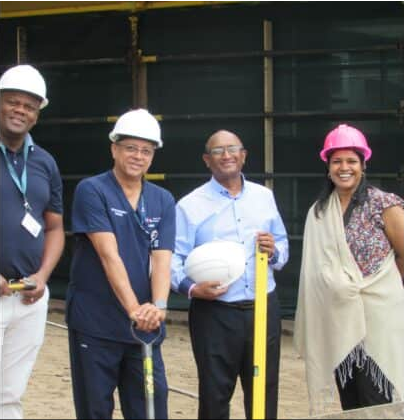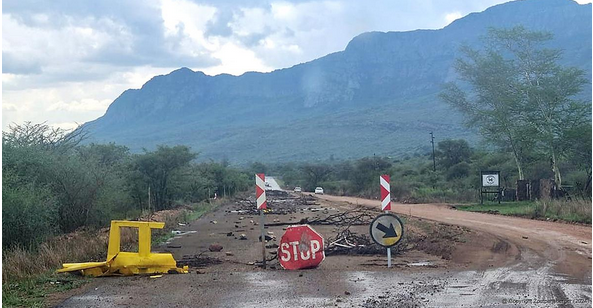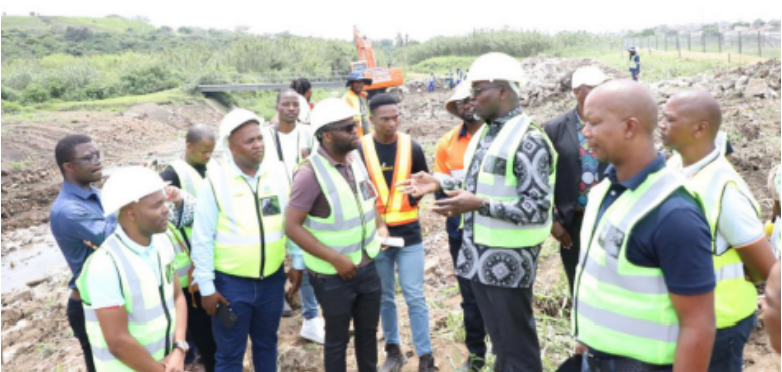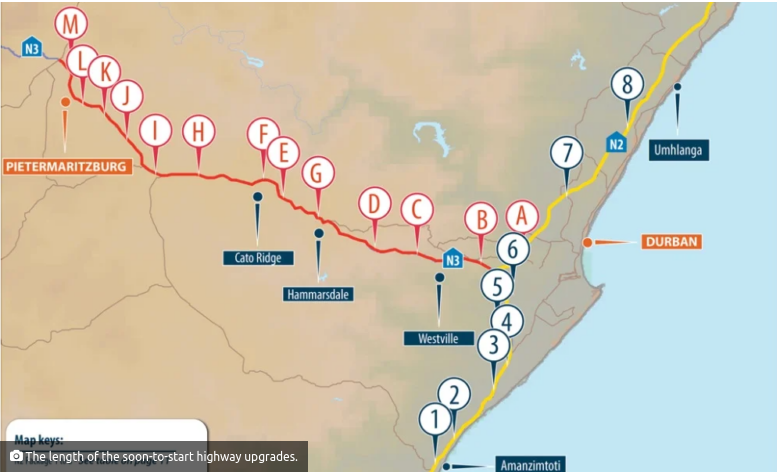Upskilling and reskilling support digital and “green” revolutions

02-12-2024
Read : 5 times
The Content Engine
Source
South Africa has committed to a net-zero CO2 target and ensuring universal access to affordable, high-speed internet.
However, a seamless transition into a digital and “green” economy can only be facilitated by appropriate skills. Therefore, this shift provides a tremendous opportunity to upskill South Africa’s youth at a large scale. This is so that they can perform the many new jobs that will be created by industries that enable these transitions; companies that have successfully navigated the change; and the many additional sectors that these revolutions will create in the future.
“According to recent research undertaken by the International Labour Organization (ILO), the digital transition on its own has the potential to create 3,6-million jobs for the global youth, many of whom are currently unemployed. Then there are the 5,8-million job prospects that will be created for young adults by the ‘green’ revolution. However, according to the ILO, when these transitions are integrated, as many as 9-million young adults stand to benefit from new employment prospects,” Marco Maree, a Triple E Training Expert Training & Development Advisor, says.
Triple E Training is a specialist provider of adult education and training (AET) to industry. The company’s quality AET equips employees and the many unemployed South African youth in labour-sourcing areas with workplace skills at a National Qualifications Framework Level 1 (NQF 1). These proficiencies are the foundation for further learning to multi-skill, cross-skill, upskill and, just as importantly, reskill.
According to the ILO, all skills levels will be required to facilitate the transition and operate these environmentally conscious and digitally equipped industries after the change has taken place. However, there will be an especially high demand for medium-skilled occupations during the transition phase. The organisation expects the digital and “green” economy revolutions to create as many as 13-million and 18,5-million additional middle-level jobs, respectively. When integrated, there will be a demand for up to 30-million global citizens with middle-level skills. These medium-skill level occupations account for about half of all the new job opportunities created by these two revolutions, according to the ILO.
Notably, the lion’s share of these vacancies is expected to be in lower-middle and upper-middle income countries where digital and energy access are low. This drives demand for services that expand broadband coverage and those that provide power or the ability to better manage electricity consumption to reduce demand. Many African countries are also grappling with a severe water and sanitation crisis that requires innovative solutions. These include reducing the water footprint by using this resource more efficiently, enabled by specialist “green” technologies and professional services. This is in addition to innovative non-centralised sanitation systems to replace crude bucket toilets that have led to deaths and deprived many citizens of their dignity. It is not feasible to connect all of these outlying areas to centralised sanitation systems. “Green” alternatives provide a quick and cost-effective means of doing so.
Maree says that vocational training has a profound role to play in developing these middle level skills. “To achieve universal broadband coverage, we don’t just need people who plan and design digital infrastructure and shape policy around digitalisation. We also need people who can work in the trenches with the skills to construct the digital backbone, as well as expand and maintain it. They play a key role by supporting the e-commerce and online services that will develop off this network. About 79% of the country has some form of internet access with the number of households without internet access decreasing from 64,8% in 2011 to 21,1%. Yet, there is still much to be done to ensure that all South Africans have access to the web, while also providing immense scope for upskilling our youth.”
He says that climate policies and investment to achieve net zero emission by promoting renewable energy, as well as energy and water efficiency also depend on technical skills. In the beginning phases of the transition, most of the jobs will be typical labour-intensive construction work. This is in addition to the various specialist trades involved in building renewable energy infrastructure and maintaining it over its lifecycle. Then there are those trades that support retrofitting buildings and homes to be energy and water efficient, such as electricians and plumbers. As the local market for these solutions grow, it will become viable to assemble or even manufacture them here, before designing, developing and making home-grown products. These assembly plants and factories will rely heavily on skilled blue-collar workers who know how to operate sophisticated equipment. Again, this upskilling process starts by getting employees to the first rung of the NQF, the bedrock of further learning.
Even so, Maree reminds that reskilling is just as important to ensure a just transition. “These transitions are very disruptive, threatening to put many people out of work in a country with already exceptionally high unemployment. This will only exacerbate already high levels of inequality. Therefore, we need to be planning well ahead as a country. For example, coal mineworkers need to be retrained for emerging sectors, such as utility-scale solar, wind, biomass and natural gas energy. This is to avoid a crisis similar to the one experienced in the banking sector due to the rapid migration of customers to digital services. The industry has already shed 7 000 jobs because they are now redundant,” he concludes.
For more information contact:
David Poggiolini
Debbie Poggiolini
Recent News
Here are recent news articles from the Building and Construction Industry.
Have you signed up for your free copy yet?









